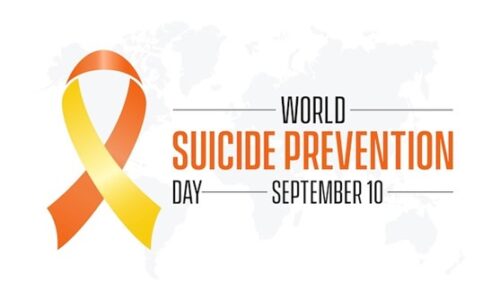We often use empathy and sympathy interchangeably. Only one of them lets people connect deeper. Empathy vs. sympathy, the ultimate battle of understanding and compassion! These two powerful emotions may seem similar, but they are actually quite different. Empathy goes beyond feeling sorry for someone; it is about truly understanding and sharing in their emotions. It allows us to put ourselves in someone else’s shoes, experiencing their pain or joy as if it were our own. Sympathy, on the other hand, is more about feeling compassion and pity for someone’s situation without necessarily fully understanding what they are going through. Empathy is like a superpower that allows us to connect with others on a deeper level, fostering genuine relationships and creating a more compassionate world. So next time you encounter a friend in need, remember to tap into your empathy superpower and be there for them in a way that truly resonates with their emotions.
We often hear people ask “ Well, what’s the difference between empathy and sympathy?” Dr. Brené Brown gives one of the best explanations of empathy and sympathy.
According to Brené Brown, empathy fuels connections. Disconnection is driven by sympathy.
By understanding the differences between empathy and sympathy, you can choose which is most appropriate for your circumstances.
Sympathy can create an uneven power dynamic and isolate people, while empathy brings them together and makes them feel included. It’s unfortunate, since sympathy usually stems from the best of intentions.
Empathy is demonstrated in four steps, according to Brown:
- By putting yourself in the shoes of someone else, you can get a better understanding of their perspective.
- Listening and not passing judgement.
- Being able to recognise emotions in another person that you have possibly felt before.
- Communicating that you get it.
It’s challenging to empathise because it involves recalling uncomfortable feelings, as Brené Brown points out. The point is to recognise feelings like frustration, nervousness, or confusion, and to understand the other person’s perspective. Short-term challenges are more challenging than long-term rewards, but empathy is more rewarding in the long run.
It’s important to realise that people aren’t usually looking for a magic answer to a challenge or difficult situation. People might be looking for someone who makes them feel like they’re not alone. There might be someone they’re looking for who’s been through a similar process. They’re looking for a connection, and empathy is all about connecting with people.
To summarise, empathy refers to
- The feeling of being in the shoes of someone else
- Engaging in active listening
- We are not judging
- Being able to read non-verbal cues and nuances
- Gaining a deeper understanding of them
- Taking the time to acknowledge everyone’s feelings
Empathy is understanding and sharing someone else’s feelings. Being empathic allows you to hear others without judgment.
There is no limit to how you can connect with another person based on your own experience. A person who is empathetic can recognise the emotions of others, regardless of what experience they have.
Understanding non-verbal cues allows you to gain insight into the perspective of others. Furthermore, you can listen without feeling forced to offer unwanted advice.
Additionally, you will be able to acknowledge the feelings of everyone involved in a given situation. A skill such as this is especially helpful for individuals who are in leadership positions. When it comes to making decisions, it can be helpful to take a step back and see the bigger picture.
The ability to empathise rather than merely sympathise can help you to build and maintain healthy relationships. The experience can help you see things from a different perspective.
Communicating more effectively is also possible when you have empathy. The reason for this is that you listen well to others and understand what they are saying.
In fact, empathy can even keep people cooperating in social situations. A lot of studies show empathy can reduce discrimination and unethical behavior in service settings.
Building a sense of belonging and fostering a happier workplace is important.
How do you define sympathy?
- Having an idea of how someone feels when you think about them
- Giving unasked advice when in conversation is a common occurrence
- Making judgments about a situation
- Observing only the superficial aspects of the problem
- Your perspective is the only one that matters
- Suppressing or ignoring your own emotions
Sympathy is different from empathy in that it does not imply that you feel what the other person feels. Instead, you feel pity or regret for the feelings of someone else. It makes you feel bad for someone, but you have no idea how they feel.
Sympathetic understanding only offers a surface-level understanding. It’s usually from your perspective, not theirs.
Unsolicited advice can also come from sympathy to help someone deal with their emotions.
Many sympathetic people pass judgment when offering such advice. The difference between empathy and sympathy is that you can still pass judgment.
Examples for sympathy vs empathy
Let’s imagine you just got reprimanded at work. This makes you feel sad, nervous, and disappointed.
Sympathy: “Why are you worried, at least you still have your job!”
Empathy: “I’m really sorry. I’m so glad you told me. I’m here for you.”
Someone at work tells you they’re having marriage problems
Sympathy: “Oh, that sucks. Have you tried marriage counseling?”
Empathy: Really listening to what the other person is saying. You can ask them if they want to talk about it with you.
Just found out your best friend split with their partner
Sympathy: “I never liked him anyway, there are plenty of other fish around.”
Empathy: “I’m really sorry. I’m so glad you told me. I’m here for you.”
Your beloved pet died
Sympathy: “At least you had 10 good years. When my dog died……”
Empathy: “ I can’t imagine how difficult it must be, would you like to talk about it? ”
You lost your job
Sympathy: “You can always find another job, have you seen seek.com.au”
Empathy: “I appreciate you sharing this. I can’t imagine how challenging this time must be, but I’m here for you.”
Had a miscarriage
Sympathy: “at least you know, you can get pregnant”
Empathy: “I’m really sorry. I’m so glad you told me. I’m here for you.”
Which is better: Sympathy or Empathy?
At WHS and Training Compliance Solutions, we are dedicated to promoting mental health and well-being. That is why we are delivering our CALM Care Suicide awareness training program. This comprehensive training aims to equip individuals with the knowledge and skills needed to identify warning signs and provide appropriate support to those at risk of suicide. Our program covers various topics, including understanding the factors contributing to suicide, effective communication techniques, and available resources for help. With CALM CARE, we aim to raise awareness, reduce stigma, and ultimately save lives. Join us in our efforts to create a safer and more compassionate community by signing up for our Suicide awareness training today.Check our CALM Suicide Prevention course.












